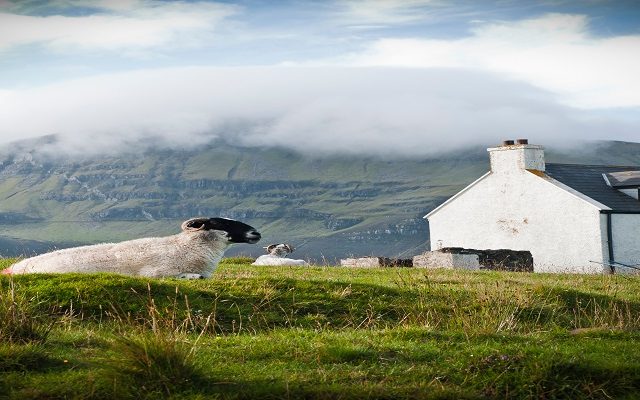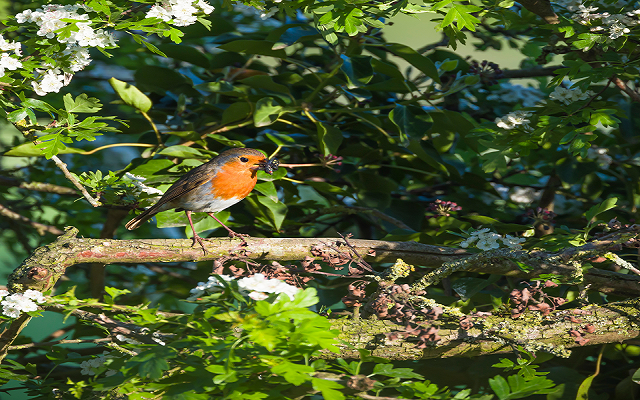Land Business Update | Week Commencing 1st February
Welcome to our update on key land management, farming, planning and energy issues.
LATEST FROM STRUTT & PARKER
Farmland market holds firm after extraordinary 2020
A combination of low supply and sustained demand means that average prices remain firm. Indeed, the consistency of average prices in recent years is remarkable, with the average price of arable land in 2020, of £9,300/acre, being exactly the same as the five-year average. Just under 54,000 acres were publicly marketed in 2020, which is the lowest amount on our records and we think in history. Read our English and Scottish Farmland Market reviews.
S&P Farming Updates published for England and Scotland
Our Farming Updates provide the latest on crop and livestock markets and policy and regulation. Read our English version or our Scottish one.
FARMING
Ban on neonicotinoid seed treatment lifted for sugar beet in 2021
Defra gave the emergency authorisation due to the potential danger posed to the 2021 crop from beet yellows virus. While welcomed by many in the farming sector, the decision has been widely condemned by environment groups. The Wildlife Trusts are preparing to take legal action unless the Government can prove it acted lawfully. They say that there is no new evidence to justify revising the 2018 findings of the risk to bees and DEFRA has also failed to properly assess the risk of harm to other wildlife. In an interesting article, the GWCT supports the government’s lifting of the ban saying that the ban was a blunt instrument and that for some crops, such as sugar beet, their use is critical to allow successful crop establishment. They also point out that sugar beet doesn’t flower as part of its cropping cycle, so the risk of insects and bees being exposed to the chemical via its pollen is nil. GWCT acknowledges that secondary impacts can occur through leaching or flowering weeds growing in the crop but states that this can be minimised through appropriate usage guidance. This is an interesting case where different risks and benefits have to be weighed.
RABI Big Farming Survey on the well being of farming people
The Royal Agricultural Benevolent Institution says that this will be the largest ever research project relating to the relationship between physical health, mental well being and health of farm businesses. The survey is open now until 31st March and takes 15 minutes online.
Air quality added to Countryside Stewardship for 2021
The aim is to reduce ammonia emissions from agriculture. Two new options (automatic floor scrapers and low emission flooring) will be added to the existing options that improve air quality (slurry store covers and planting of tree shelter belts). These changes are designed to contribute to the targets set in the Clean Air Strategy.
Cross compliance rules remain in place and unchanged for 2021
The rules will continue to be a condition of receiving Basic Payments. Defra is however planning to make improvements to inspections and simplify the cross compliance guidance.
ENVIRONMENT
Scottish government sets out plans to hit net-zero emissions
The plans set out how it intends to achieve its climate change targets of reducing emissions by 75% by 2030 and to net-zero by 2045:
- By 2022 – a deposit return scheme for single-use drinks containers
- By 2022 – a series of technology funds to help develop hydrogen and carbon capture and storage industries
- By 2024 – supporting the planting of 18,000 hectares of new woodlands per year
- By 2025 – 50% of all new heating systems to be zero-emissions models
- By 2025 – reduce food waste by 33% compared to 2013.
- By 2030 – ‘phased out’ the need for new petrol and diesel cars, including the kilometres driven by cars by 20%.
- By 2020 – restore 250,000 hectares of peatland
- By 2030 – renewable energy generation to account for 50% of energy demand across electricity, heat and transport.
- By 2035 – fully decarbonising the passenger rail network.
Burning banned on a third of the UK’s designated blanket bogs
Burning will be banned on blanket bog – peat more than 40cm deep – that is designated as a Site of Special Scientific Interest (SSSI), Special Area of Conservation (SAC) or Special Protection Area (SPA), unless a licence has been granted or the land is steep or rocky. The ban aims to reduce damage to peatland formation and habitat condition. Environmental organisations have been lobbying for a wider ban and fear that loopholes in the new licensing system will allow burning to continue. Moorland owners argue that burning is needed to control the risk of wildfires, although this is contested. Natural England has said it will provide advice on good upland management and lead a new peatland restoration grant scheme.
PROPERTY
Business interruption insurance case
The Supreme Court backed the regulator and insurance policyholders in a high-profile dispute between the Financial Conduct Authority and the insurance industry over business interruption insurance during the coronavirus pandemic. The ruling means that thousands of policyholders are likely to get a payout from their insurance companies for losses during the national lockdown last year. “Coronavirus is causing substantial loss and distress to businesses and many are under immense financial strain to stay afloat,” said Sheldon Mills, executive director of consumers and competition at the FCA. “Today’s judgment decisively removes many of the roadblocks to claims by policyholders,” he said
Electrical installation report required in all let residential property in England from 1st April
Most let residential properties must have an Electrical Installation Condition Report (EICR) produced by a qualified and competent person working to NICEIC / ELECSA guidance by 1st April 2021. This requirement applied to new tenancies from 1st July 2020 but will apply to all tenancies from the start of April. The regulations are not complicated but they are detailed, so please use our check list for property managers or contact Jessica Waddington for guidance. An equivalent provision has applied in Scotland since 2016.






